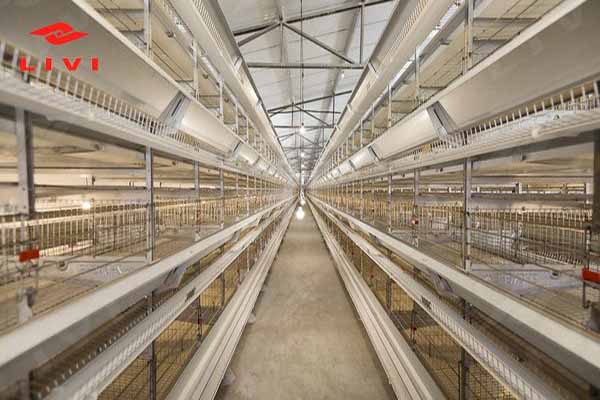Poultry Farming Houses in Kenya: A Comprehensive Guide
Time : 2025-05-13
Are you thinking of starting a poultry farming business in Kenya? If so, you’ve come to the right place. Poultry farming is a lucrative and sustainable business venture, and having the right housing for your birds is crucial. In this article, we’ll dive into everything you need to know about poultry farming houses in Kenya, from design to construction and maintenance. Let’s get started!
Understanding the Importance of Poultry Farming Houses
First things first, why is it so important to have a proper poultry farming house? Well, the answer is simple. A well-constructed house can significantly impact the health, productivity, and overall well-being of your birds. It provides them with a safe, comfortable environment that can protect them from predators, extreme weather conditions, and diseases.
Designing Your Poultry Farming House
When designing your poultry farming house, there are several factors to consider:
1. Location
The location of your poultry house is crucial. It should be away from residential areas to minimize noise and odor complaints. Additionally, it should be on high ground to prevent flooding and be accessible for deliveries and maintenance.
2. Size
The size of your poultry house will depend on the number of birds you plan to raise. As a general rule, you’ll need about 0.5 square meters per bird for broiler chickens and 1.5 square meters per bird for laying hens. Remember to leave some space for growth and equipment.
3. Ventilation
Proper ventilation is essential to maintain a healthy environment for your birds. Natural ventilation through windows and doors is ideal, but mechanical ventilation can be used in extreme weather conditions. The ventilation system should be designed to provide a constant supply of fresh air while keeping out dust and pests.
4. Temperature and Humidity Control
Birds are sensitive to temperature and humidity changes. Your poultry house should be equipped with a cooling system during hot weather and a heating system during cold weather. The ideal temperature for broiler chickens is between 18°C and 24°C, while laying hens prefer temperatures between 20°C and 25°C.
5. Flooring
The flooring of your poultry house should be easy to clean and disinfect. Concrete or wooden floors are popular choices. Avoid using sandy or earthen floors, as they can harbor pathogens.
Construction of Poultry Farming Houses
Once you’ve decided on the design, it’s time to start construction. Here are some key points to consider:
1. Materials
Choose high-quality materials that are durable and weather-resistant. Common materials used in poultry house construction include steel, wood, and concrete.
2. Contractors
Hiring experienced contractors is crucial for the successful construction of your poultry house. Make sure they have a good reputation and are familiar with poultry farming.
3. Permits and Regulations
Before starting construction, ensure that you have all the necessary permits and comply with local regulations. This may include environmental impact assessments, building permits, and zoning approvals.
Maintenance of Poultry Farming Houses
Once your poultry house is up and running, regular maintenance is essential to keep it in good condition. Here are some maintenance tips:
1. Cleaning
Regular cleaning of the poultry house is crucial for preventing diseases and maintaining a healthy environment. Clean the house at least twice a week, removing any manure and dead birds.
2. Disinfection
Disinfect the house after each cleaning to kill any remaining pathogens. Use a suitable disinfectant and follow the manufacturer’s instructions.
3. Repair and Replacement
Regularly inspect the house for any signs of wear and tear. Repair or replace any damaged parts promptly to prevent further damage.
Tips for Success in Poultry Farming
Now that you have a solid understanding of poultry farming houses in Kenya, here are some additional tips to help you succeed in your business:
1. Start Small
Begin with a small flock of birds to test the waters and learn the ropes before scaling up.
2. Keep Records
Maintain detailed records of your birds, feed, and expenses. This will help you track your progress and make informed decisions.
3. Stay Informed
Keep up-to-date with the latest trends and advancements in poultry farming. Attend workshops, read industry publications, and network with other poultry farmers.
4. Seek Professional Advice
Don’t hesitate to seek advice from experts in the field. They can provide valuable insights and help you avoid common pitfalls.
Conclusion
Poultry farming houses in Kenya are a vital component of a successful poultry farming business. By carefully designing, constructing, and maintaining your poultry house, you can create a conducive environment for your birds and maximize your profits. Remember to start small, stay informed, and seek professional advice when needed. With the right approach, you’ll be well on your way to a thriving poultry farming operation.












